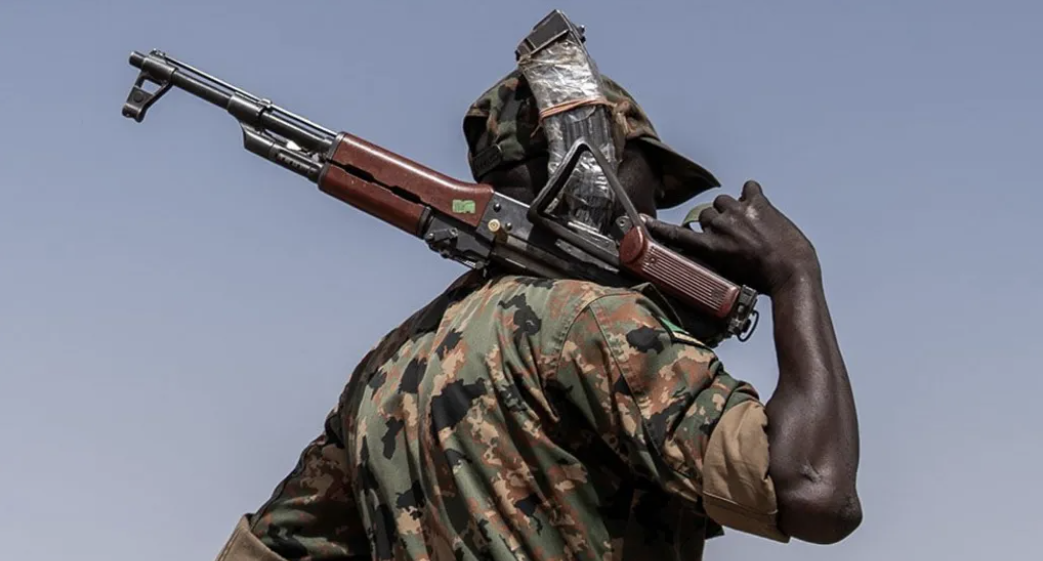
Sudan's oil-rich Kordofan region has turned into a major front line in the war between the army and rival paramilitary forces, as both sides try to gain the upper-hand in a conflict that has devastated the vast African state for more than two years.
Attacks that killed hundreds of civilians earlier this month have shifted attention to the battle for this part of the country.
"Whoever controls Kordofan effectively controls the country's oil supply, as well as a huge chunk of Sudan," Amir Amin, an analyst with risk consultancy Oasis Policy Advisory, told the BBC.
The region is also vital for landlocked South Sudan, as its oil flows through pipelines in Kordofan, before being exported. So, it has a vested interest in Kordofan's stability.
However, the battle for the region - which is made up three states, with a population of close to eight million - has intensified since June, when the army focused on regaining the territory from the Rapid Support Forces (RSF) after it made significant gains in the preceding three months, recapturing the capital, Khartoum, and neighbouring Gezira state, the agricultural hub of Sudan.
Sudan's military leader Gen Abdel Fattah al-Burhan flew into Khartoum's main airport on 20 June, his second visit to the city since his troops drove out RSF fighters in March.
Gen Burhan remains stationed Port Sudan, suggesting that he is still not confident to return permanently to Khartoum, now a burnt-out wreck.
The conflict has claimed the lives of about 150,000 people and forced about 12 million others from their homes - roughly the equivalent of the population of Tunisia or Belgium.
The RSF had seized Khartoum soon after the war started in April 2023, following a massive fall-out between Gen Burhan and his then-ally, the paramilitary group's commander, Gen Mohamed Hamdan Dagalo, better known as "Hemedti".
The RSF helped Burhan stage a coup in 2021 and crush dissent until they turned on each other after Gen Dagalo resisted his plan to integrate the paramilitary force into the army.
On the other hand, the RSF wanted to seize Kordofan as it would give it "new momentum" and put it "within striking distance of central Sudan, including the capital, again", Mr Boswell said.
He said the majority of RSF fighters were from the large Misseriya ethnic group living in West Kordofan state, which borders Darfur, "and therefore they will be fighting to protect their own communities".
"If the army's aviation returns again and bombs citizens in West Kordofan state, we will strike and shut down Heglig's oil and kill the engineers," Youssef Awadallah Aliyan, the head of the RSF's civilian administration in the state, was quoted as saying by the Sudan Tribune news site after visiting the market hit by airstrikes in el-Fula.
Ocha condemned the attacks, saying that civilians and civilian buildings - including schools, homes, and shelters - should "never be targeted", and warring groups should uphold international humanitarian law.
The UN children's agency (Unicef) said more than 450 civilians - including 24 boys, 11 girls and two pregnant women - were reportedly killed in recent attacks in North Kordofan's Bara area and the villages of Shag Alnom and Hilat Hamid.
The US-based Yale Humanitarian Research Lab, which has been monitoring the conflict, said that an analysis of satellite images of Shag Alnom was "indicative of intentional arson attacks".
The Emergency Lawyers rights group said that many of the more than 200 victims "were burned to death in their homes or shot".
Fears are growing that the civilian death toll could worsen following reports that the RSF is mobilising for an offensive to capture el-Obeid, the capital of North Kordofan state.
The town of Umm Sumaima has changed hands several times in recent weeks.
"It is the last defence post for the Sudan Armed Forces before el-Obeid," Dr Baldo said.
Mr Amin said that taking control of Umm Sumaima would allow the RSF to besiege the military, which has a base in el-Obeid, while the army wanted to break through to create a new supply route to rearm its soldiers in other parts of Kordofan.
With the stakes high, the battle for Kordofan - which covers some 390,000 sq km - is expected to be long and protracted.
"Whether or not it will decide the victor of the war is up for debate, but it definitely will be a seismic shift," Mr Amin said.











